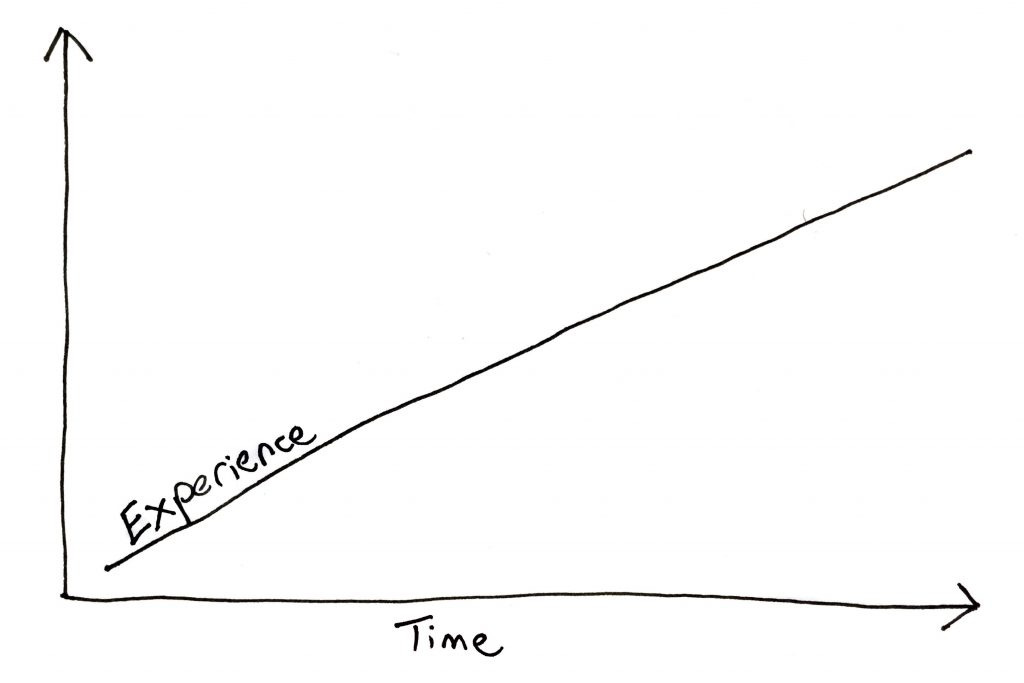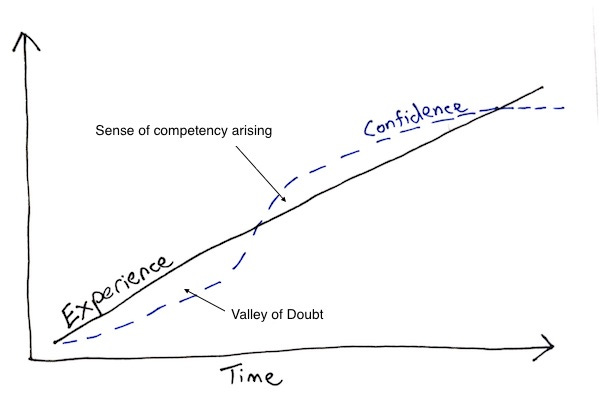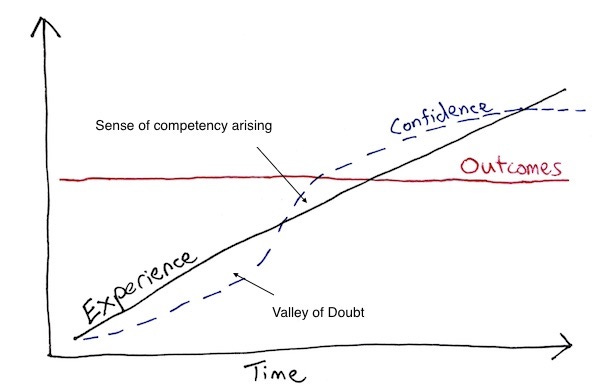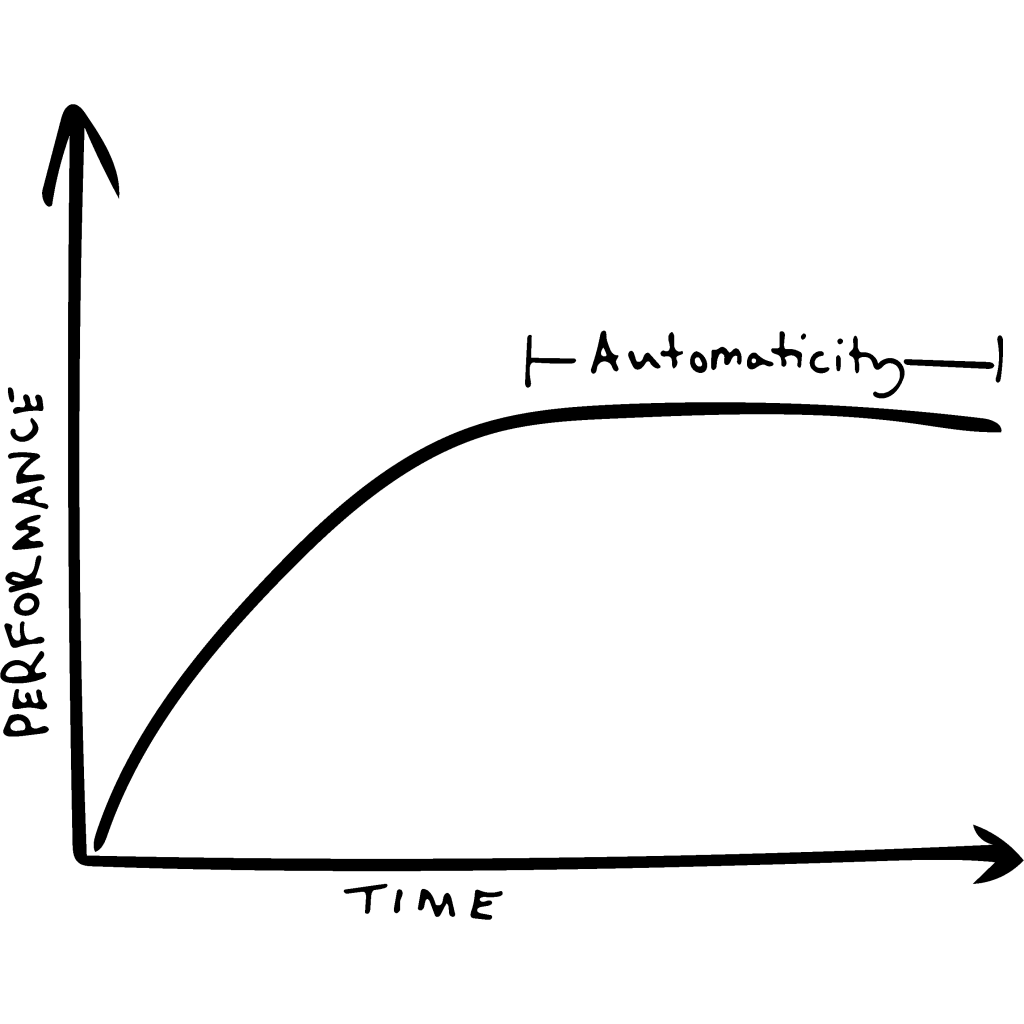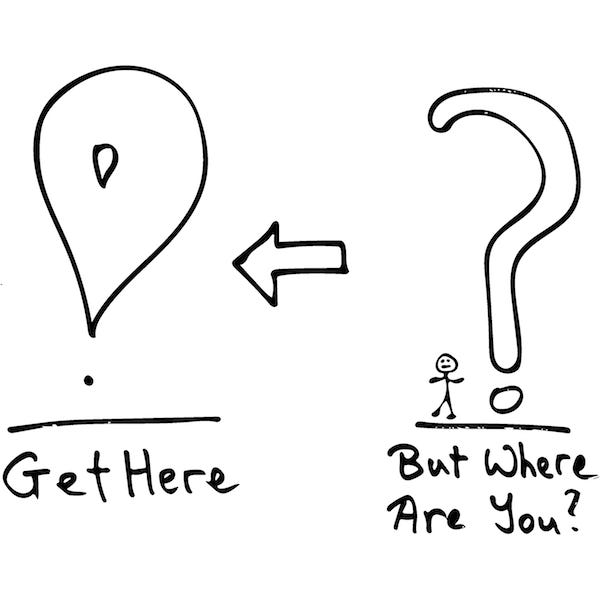6 Visuals About Our Progress
Updates by Daryl Chow, MA, Ph.D.(Psych)
View this email in your browser
6 Visuals About Our Progress
By Daryl Chow, MA, PhD on Jul 19, 2019 12:00 am
In this short post, I’ve pulled together six simple visuals that speaks to the evolution of our field in psychotherapy.
Are You Experienced?
Clinical experience matters in our common parlance. We say things like, “Go see Dr. Smith. He’s really experienced.” In many instances in and outside of our field, we assume that the greater the experience, the more effective the practitioner.
We paid our dues and earn our stripes with all those years of graduate school. The first few years after graduation, we walk through the valley of doubt. After some time, with more PDs and clinical supervision under our belt, whilsts working in the trenches of clinical practice, we feel a tinge of competency arising in us. Stay long enough past the 10-12 year mark, you’d hear a voice inside that says, “I think I can do this.”
Wait. What’s happening here? Our outcomes as psychotherapists do not improve over time? How can this be? Is there evidence of this? In 2016, Simon Goldberg and colleagues[1] studied 170 therapists who had seen 6591 clients. Given that this pool of therapists have been systematically using outcomes measures in their practice, the researchers detected that most therapists did not improve their outcomes with experience. We found a similar phenomena in our first Supershrinks study. Not only did experience failed to predict better performance, the more senior the practitioner, the more like he/she thinks she is more therapeutic in engagement. [2]
The late Paul Clement is a man before his time. He systematically documented—AND PUBLISHED 3 papers!—his outcomes in 45 years of private practice. What he found is sobering for our entire field. He found no improvement of client outcomes through the years of his clinical practice.[3]
Synthesising the above findings, one of the key pathways out of this stalemate is to rethink our professional development efforts. One of the key elements is to reignite our “signature pedagogy” of clinical supervision. (This is where our in-depth online course, Reigniting Clinical Supervision does. Challenge our status quo approach to supervision.)
Overcoming The “OK” Plateau
As we cumulate clinical experience, one of the challenges we face is to overcome automaticity, or sometimes referred to as The “OK” plateau.
It seems that the more effective therapists, based on their overall performance (not just on a single or a few client outcomes), counteract their own thresholds. In other words, they are often pushing outside of their comfort zone.
Which lead us to the question: How do you break this threshold of competency? Here’s one of the answers we know that has been validated in our field since 2014. Compared to the average counterparts, the more effective therapists engage in more solitary deliberate practice. Specifically, they engage in nearly 2.5 times more than the average cohort. [4] So is it just more alone time at reading relevant materials, watching master therapist videos, and attending model specific trainings? Turns out, each of our learning needs depends heavily on where our baseline performance is at.
I’ve been thinking a lot about how to help practitioners counteract automaticity in order to raise above their current performance. We developed a taxonomy of deliberate practice activities (TDPA) worksheets to guide therapists and clinical supervisors. In the process, I’ve witnessed several therapists who played the long game, and reap the rewards of their efforts. Something magical happens when evolution happens.
Visibility
Here’s something to things about. How do you make progress visibility to both you and your clients? Instead of using outcomes measures as solely an assessment tool, how do you turn it into a conversational tool at each step of the way? What’s visible becomes visceral.
Re-vision
I believe we can re-write the graph on our progress (take a look at Figure 3 again). We need to get personal in our professional development. This starts with moving beyond borrowing evidence from elsewhere, and developing our own individualised evidence.
…And here’s the final visual. Progress starts here.
Footnotes:
[1] Goldberg, S. B., Rousmaniere, T., Miller, S. D., Whipple, J., Nielsen, S. L., Hoyt, W. T., & Wampold, B. E. (2016). Do psychotherapists improve with time and experience? A longitudinal analysis of outcomes in a clinical setting. J CounsPsychol, 63(1), 1-11. doi:10.1037/cou0000131
[2] Chow, D. (2014). The study of supershrinks: Development and deliberate practices of highly effective psychotherapists.(PhD), Curtin University, Australia.Chow, D., Miller, S. D., Seidel, J. A., Kane, R. T., Thornton, J., & Andrews, W. P. (2015). The role of deliberate practice in the development of highly effective psychotherapists. Psychotherapy, 52(3), 337-345. doi:http://dx.doi.org/10.1037/pst0000015
[3] Clement, P. P. A. (2013). Practice-Based Evidence: 45 Years of Psychotherapy’s Effectiveness in a Private Practice. American Journal of Psychotherapy, 67(1), 23-46.Clement, P. W. (2008). Outcomes from 40 years of psychotherapy in a private practice. American Journal of Psychotherapy, 62(3), 215-239.Clement, P. W. (1994). Quantitative evaluation of 26 years of private practice. Professional Psychology: Research and Practice, 25(2), 173-176. doi:http://dx.doi.org/10.1037/0735-7028.25.2.173
[4] Chow, D., Miller, S. D., Seidel, J. A., Kane, R. T., Thornton, J., & Andrews, W. P. (2015). The role of deliberate practice in the development of highly effective psychotherapists. Psychotherapy, 52(3), 337-345. doi:http://dx.doi.org/10.1037/pst0000015
The post 6 Visuals About Our Progress appeared first on Frontiers of Psychotherapist Development.
Recent Articles:
How Do You Go Faster on a Bicycle?
Feathers and Wings, and How We Fly
“Is the Scientific Paper a Fraud?”
To Specialise or Not to Specialise?
The Domino Effect





